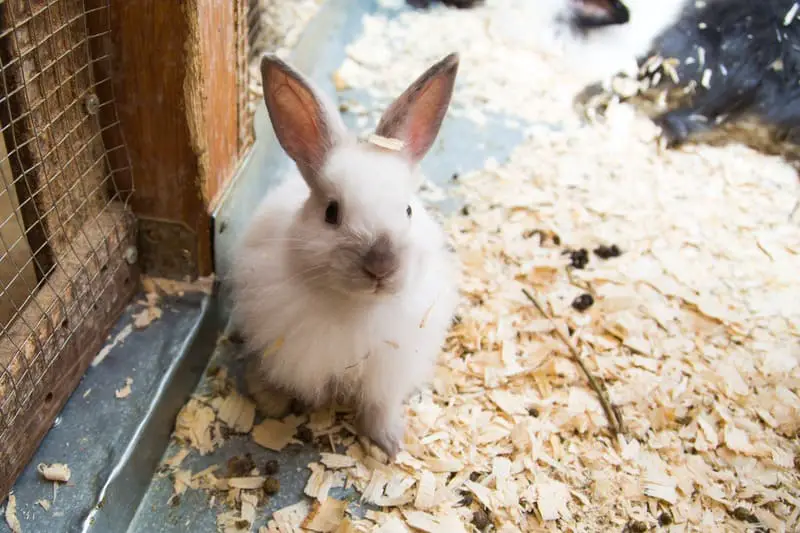Rabbits are endearing and popular pets known for their gentle nature and unique personalities. They can make wonderful additions to your family, bringing joy and companionship. However, like all pets, rabbits require proper care to ensure they lead healthy, happy lives. One essential aspect of their care is regular veterinary care. In this comprehensive guide, we will explore the importance of vet care for rabbits, the types of health issues they may encounter, and how to provide the best possible medical attention for your furry friend.

The Importance of Veterinary Care for Rabbits
Regular veterinary care is crucial for rabbits to maintain their health and well-being. While rabbits may appear small and hardy, they are susceptible to a variety of health issues that can develop rapidly. Here are some key reasons why veterinary care is essential for rabbits:
1. Preventative Care
Just like other pets, rabbits benefit from preventative care. Regular check-ups with a veterinarian can help identify health concerns before they become serious issues. This can lead to early intervention and improved outcomes.
2. Parasite Control
Rabbits can be susceptible to external and internal parasites, including mites, fleas, and gastrointestinal worms. A veterinarian can recommend appropriate parasite control measures to keep your rabbit healthy.
3. Dental Health
Rabbits have continuously growing teeth that can develop dental issues if not properly maintained. These problems can be painful and affect your rabbit’s ability to eat. Regular dental check-ups with a vet can help address dental concerns.
4. Vaccinations
In some regions, rabbits may require vaccinations to protect against diseases like myxomatosis or rabbit hemorrhagic disease (RHD). A veterinarian can advise on the appropriate vaccination schedule for your rabbit based on your location and the specific risks in your area.
5. Diet and Nutrition
A veterinarian can provide guidance on your rabbit’s diet, ensuring that they receive a balanced and nutritionally appropriate diet. They can help prevent issues like obesity or malnourishment.
6. Spaying and Neutering
Spaying and neutering rabbits is essential to prevent unwanted pregnancies and reduce the risk of certain health issues, such as uterine cancer in females. A veterinarian can perform these procedures safely.
7. Behavior and Socialization
If you encounter behavioral issues with your rabbit, a veterinarian can offer advice and solutions. They can also help with socialization and introduce you to resources that enhance your rabbit’s well-being.
8. Emergencies
In the case of sudden illness or injury, having a trusted veterinarian is crucial. Rabbits can deteriorate rapidly, so immediate medical attention is often needed in emergencies.

Common Health Issues in Rabbits
Rabbits can develop a range of health issues, some of which are more common than others. Here are some of the most prevalent health concerns in rabbits:
1. Gastrointestinal Stasis
Gastrointestinal stasis, also known as “GI stasis,” is a common and potentially life-threatening condition in rabbits. It occurs when the digestive system slows down or stops working. Signs of GI stasis may include reduced appetite, decreased fecal production, and lethargy. Prompt veterinary care is essential to address this condition.
2. Dental Problems
Rabbits have teeth that continuously grow throughout their lives. Dental problems, such as overgrown teeth, abscesses, or spurs, can cause pain and difficulty eating. Regular dental check-ups are important to prevent or address these issues.
3. Respiratory Infections
Rabbits can develop respiratory infections, often as a result of environmental factors or stress. Symptoms may include nasal discharge, sneezing, and labored breathing. Prompt treatment by a veterinarian is necessary to prevent complications.
4. Parasites
External parasites like mites and fleas can affect rabbits. Internal parasites, such as gastrointestinal worms, can also be a concern. A veterinarian can diagnose and provide treatment for these parasitic infestations.
5. Obesity
Obesity is a growing concern in pet rabbits. An improper diet, lack of exercise, and overfeeding can lead to obesity. A veterinarian can help you establish a healthy diet and exercise routine to prevent or address obesity.
6. Dental Disease
Dental disease encompasses a range of issues, including malocclusion (misalignment of teeth), dental abscesses, and tooth spurs. These problems can lead to pain and difficulty eating. A veterinarian with experience in rabbit dentistry can provide appropriate care.
7. Uterine Cancer
Unspayed female rabbits are at risk of developing uterine cancer. Spaying your rabbit is an effective way to prevent this serious health concern.
8. Infections
Rabbits can develop various infections, such as skin infections, ear infections, and eye infections. A veterinarian can diagnose and treat these infections to prevent them from spreading or worsening.
9. Myxomatosis
Myxomatosis is a viral disease that affects rabbits and is transmitted by biting insects. It can be fatal, and vaccination is available in some regions to protect against this disease. A veterinarian can advise on vaccination options.
10. Rabbit Hemorrhagic Disease (RHD)
Rabbit hemorrhagic disease (RHD) is a highly contagious and often deadly viral infection that affects rabbits. Vaccination is available in some areas to prevent this disease. A veterinarian can provide guidance on the vaccination protocol for your rabbit.

Finding a Rabbit-Savvy Veterinarian
When it comes to rabbit care, finding a veterinarian who is knowledgeable and experienced with rabbits is crucial. Not all veterinarians have the expertise to care for rabbits, so it’s essential to do some research to locate a rabbit-savvy vet in your area. Here are some steps to help you find the right veterinarian for your rabbit:
1. Ask for Recommendations
Start by asking fellow rabbit owners or local rabbit rescue organizations for recommendations. They may have insights into veterinarians with a good reputation for rabbit care.
2. Research Local Veterinary Clinics
Research local veterinary clinics in your area and check their websites for information about their staff’s expertise in exotic pet care or specifically in rabbit care.
3. Schedule a Consultation
Once you’ve identified a potential rabbit-savvy veterinarian, schedule a consultation to discuss your rabbit’s needs and any concerns you may have. This is an opportunity to assess their knowledge and approach to rabbit care.
4. Ask Questions
During the consultation, don’t hesitate to ask questions about the veterinarian’s experience with rabbits, their approach to preventive care, and how they handle emergencies.
5. Observe the Facility
If possible, visit the veterinary clinic to observe the facilities and assess their suitability for rabbit care. Clean, well-maintained facilities are a good sign.
6. Emergency Care
Inquire about emergency care options. A reliable rabbit-savvy veterinarian should have provisions for handling emergencies, even outside regular business hours.
7. Trust Your Instincts
Trust your instincts and choose a veterinarian with whom you feel comfortable and confident. The right veterinarian should be knowledgeable, compassionate, and attentive to your rabbit’s specific needs.
Preparing for Vet Visits
Visiting the vet with your rabbit can be a stressful experience for both you and your pet. However, there are steps you can take to prepare for vet visits and make them as smooth as possible:
1. Carrier Training
Train your rabbit to become comfortable with a carrier well before the vet visit. Place the carrier in your rabbit’s living area, allow them to explore it, and offer treats inside to create a positive association.
2. Familiarize with Handling
Handle your rabbit regularly to accustom them to being touched and lifted. This will help reduce stress during veterinary examinations.
3. Bring Comfort Items
During the vet visit, bring familiar items from your rabbit’s living area, such as a favorite blanket or toy, to provide comfort and security.
4. Prepare a Medical History
Keep a record of your rabbit’s medical history, including vaccination records, previous health concerns, and any medications or supplements they are taking.
5. Bring a List of Concerns
Write down any specific concerns or questions you have for the veterinarian. This will help ensure that all your concerns are addressed during the visit.
6. Monitor Your Rabbit
Keep an eye on your rabbit’s behavior and condition leading up to the vet visit. Note any changes in appetite, behavior, or symptoms of illness to share with the veterinarian.
7. Maintain a Calm Demeanor
Rabbits are sensitive to their owners’ emotions. Stay calm and reassuring during the vet visit to help keep your rabbit at ease.
8. Ask for Handling Techniques
If your rabbit becomes agitated or stressed during the vet visit, ask the veterinarian or veterinary staff for handling techniques that can help calm your rabbit.

Routine Veterinary Care
Routine veterinary care for rabbits includes a series of regular check-ups, vaccinations, and preventative measures to ensure your rabbit’s health. Here’s what you can expect during routine veterinary care for your rabbit:
1. Initial Wellness Exam
When you first acquire a rabbit, schedule an initial wellness exam with a veterinarian. This allows the vet to perform a thorough physical examination and establish a baseline for your rabbit’s health.
2. Vaccinations
Depending on your location and the specific risks in your area, your rabbit may require vaccinations. Common vaccines for rabbits include those for myxomatosis and rabbit hemorrhagic disease (RHD). The vet will advise on an appropriate vaccination schedule.
3. Dental Check-ups
Rabbits are prone to dental issues, so regular dental check-ups are essential to prevent or address problems like overgrown teeth or abscesses.
4. Spaying and Neutering
Unspayed female rabbits are at risk of uterine cancer, making spaying a recommended procedure. Neutering males can help prevent unwanted pregnancies and reduce aggressive behavior.
5. Parasite Control
Routine preventative measures for external and internal parasites may be recommended by your veterinarian.
6. Diet and Nutrition
A veterinarian can provide guidance on your rabbit’s diet, ensuring that they receive a balanced and nutritious diet appropriate for their age, weight, and health.
7. Nail Trimming
Nail trimming may be necessary if your rabbit’s nails become overgrown. A veterinarian can demonstrate the proper technique and assist with this.
8. Behavioral Consultations
If you encounter behavioral issues with your rabbit, a veterinarian can provide advice and strategies to address these concerns.
9. General Health Assessment
Routine veterinary check-ups include a general health assessment, during which the vet examines your rabbit’s overall condition, heart and lung function, and more.
10. Emergency Preparedness
Your veterinarian can advise on what to do in case of an emergency. Knowing where to go and what to do in the event of an urgent health issue is vital.
Emergency Veterinary Care
In addition to routine veterinary care, it’s important to be prepared for emergencies. Rabbits can experience sudden health crises, and knowing how to respond in these situations is crucial. Here are steps to take if you believe your rabbit is facing a health emergency:
1. Identify Emergency Signs
Learn to recognize the signs of a rabbit health emergency, such as difficulty breathing, severe lethargy, loss of appetite, abnormal feces, or signs of pain or distress.
2. Contact Your Veterinarian
If you suspect an emergency, contact your veterinarian immediately. They can provide guidance and determine if you need to bring your rabbit in for emergency care.
3. Locate an Emergency Vet
Find an emergency veterinary clinic in your area that is experienced in treating rabbits. Be aware of their hours of operation and contact information in case you need to visit outside regular business hours.
4. Keep a Pet First Aid Kit
Maintain a pet first aid kit that includes basic supplies like bandages, antiseptic, and a thermometer. Your veterinarian can recommend what to include.
5. Stay Calm
In an emergency, it’s important to stay as calm as possible to provide the best care for your rabbit. Stress and panic can exacerbate the situation.
6. Transport Safely
If you need to transport your rabbit to an emergency clinic, use a secure and well-ventilated carrier. Place familiar items, such as a blanket or toy, inside for comfort.
7. Follow Veterinarian’s Instructions
Follow the instructions provided by the veterinarian during the emergency visit. They may recommend specific treatments or further tests to address the issue.
Common Questions About Rabbit Vet Care
As rabbit owners seek to provide the best possible care for their furry companions, several common questions arise regarding veterinary care for rabbits. Here are some frequently asked questions and their answers:
1. How often should I take my rabbit to the vet?
Rabbits should have an initial wellness exam when you first acquire them. After that, they should have regular check-ups at least once a year, as well as additional visits for specific health concerns or emergencies.
2. Do rabbits need vaccinations?
The need for vaccinations varies depending on your location and the specific risks in your area. Common vaccines for rabbits include those for myxomatosis and rabbit hemorrhagic disease (RHD). Your veterinarian will advise on appropriate vaccination protocols.
3. When should I spay or neuter my rabbit?
Spaying or neutering can typically be done at around 4-6 months of age. Spaying is important for preventing uterine cancer in female rabbits, while neutering can help prevent unwanted pregnancies and reduce aggressive behavior in males.
4. How can I prevent dental problems in my rabbit?
Proper dental care includes providing a diet that encourages natural wear of the teeth, offering appropriate chew toys, and ensuring regular dental check-ups with a veterinarian.
5. Can I groom my rabbit at home?
Grooming your rabbit at home, such as brushing and nail trimming, is an important aspect of their care. A veterinarian can provide guidance on grooming techniques and tools.
6. How can I recognize signs of illness in my rabbit?
Signs of illness in rabbits may include changes in appetite, behavior, or fecal output, as well as unusual symptoms like sneezing, coughing, or discharge from the eyes or nose. It’s important to familiarize yourself with your rabbit’s normal behavior to detect any deviations.
7. What should I do if my rabbit stops eating?
If your rabbit stops eating, it is a serious concern. Contact your veterinarian immediately, as this can be a sign of a potentially life-threatening condition, such as gastrointestinal stasis.
